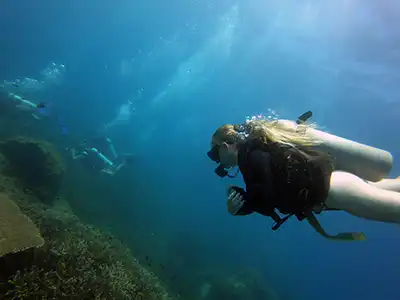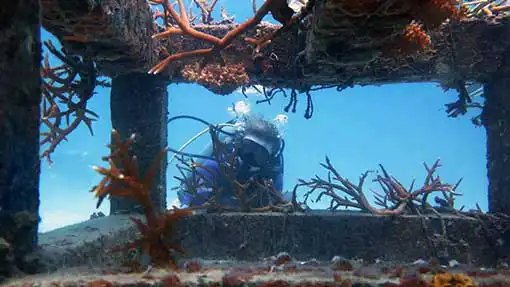
This course is tailored to educate you on coral reefs, their ecological significance, and the challenges they encounter on a global scale.
In our commitment to coral reef restoration, we have obtained approval from the Department of Marine & Coastal Resources to transplant coral, which is one of the ways that we partake in Coral Restoration.
This course will also take you through the stages of transplanting and techniques of using “Corals of Opportunity” to rebuild impacted areas.
In numerous locations worldwide, including Thailand, laws prohibit touching or harming coral, presenting challenges for restoration initiatives such as coral transplantation without proper authorisation.
At Crystal Dive, we have been granted special authorisation by the Department of Marine & Coastal Resources to undertake coral restoration efforts. While direct contact with coral is prohibited by students, you will have the opportunity to assist us in coral transplantation at designated research and restoration sites.
Throughout this process, you will gain insight into various techniques tailored to different coral species and locations.
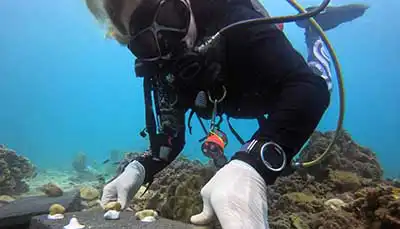
INTRODUCTION TO CORAL RESTORATION SCHEDULE
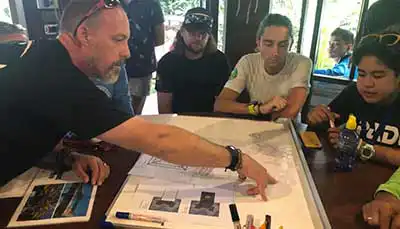
Day 1 - Introduction to Coral Restoration
AM – Meet up with your Marine Conservation trainer and go through coral ecology theory.
PM – Head out on the dive boat and complete 2 dives, identifying different coral species and looking at “Corals of Opportunity”.
Day 2 - Introduction to Coral Restoration
AM – Meet up with your Marine Conservation trainer and go through different transplantation techniques for coral restoration.
PM – Assist on 2 coral restoration dives (environmental conditions permitting).
PREREQUISITES
Before beginning any of our marine conservation courses including the Introduction to Coral Restoration, we need you to be a Advanced Open Water Diver with a Peak Performance Specialty certification.
For those who may not yet possess the necessary certifications or skills in buoyancy control, we offer short courses designed to enhance their underwater abilities. These courses provide valuable training and practice opportunities to improve buoyancy control, preparing individuals to engage in our Introduction to Coral Restoration program confidently.
By prioritising buoyancy control and offering additional training opportunities, we empower participants to become responsible stewards of the marine environment, actively contributing to coral reef conservation efforts while minimizing their ecological footprint.
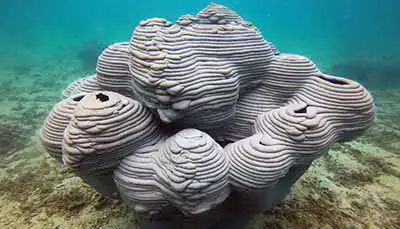
GET INVOLVED !
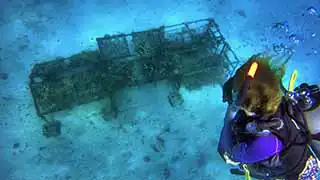
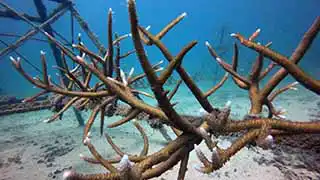
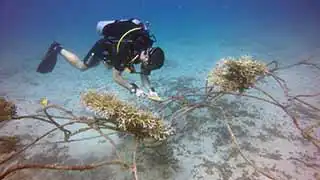
Sign up below to book your 2 day Introduction to Coral Restoration and start your journey into Marine Conservation.
If you want more out of Marine Conservation then sign up for a Marine Conservation Internship and get involved with all our current projects. Internships range from 1 week to 3 months.
The first step into saving our coral reefs is knowledge. Join The Coral Tribe and get hands on experience with Coral Restoration.
Book the 2 day coral restoration course
This course is designed to teach you about coral reefs, their benefits and the issues they face globally.
To help restore coral reefs, we are approved by the Department of Marine & Coastal Resources to transplant coral, which is one of the ways that we partake in Coral Restoration.
This course will also take you through the stages of transplanting and techniques of using “Corals of Opportunity” to rebuild impacted areas.
2 x Days & 4 x Dives.
Basic Coral Ecology presentation.
All materials and dive equipment included.
Learn different coral restoration techniques.
Visit our research and artificial dive site.
Assist our certified coral transplant team.
฿8,000
GET MORE INFO !
If you have questions, about any of our projects, citizen science, research, volunteering, internships or training.
Please get in touch with us!
